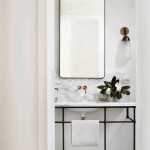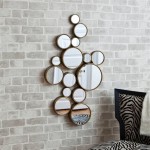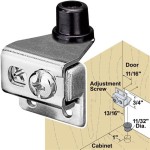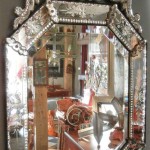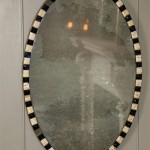How to Mount a Frameless Mirror Without Clips
Frameless mirrors offer a sleek and modern aesthetic, seamlessly integrating into any interior design. While clips are a popular method for hanging mirrors, they can sometimes be visible, detracting from the minimalist look. This article explores alternative methods for mounting frameless mirrors without relying on clips, ensuring a clean and professional finish.
1. Adhesive Mounting
Adhesive mounting is a simple and effective solution for hanging lighter mirrors. Specialized mirror adhesives offer strong bonding power while remaining residue-free upon removal. This method requires careful preparation and meticulous application.
Preparation and Application
Before applying the adhesive, ensure the wall surface is clean, dry, and free from dust or debris. For best results, use a level to mark the desired position of the mirror on the wall. Apply the adhesive to the back of the mirror, following the manufacturer's instructions. Be mindful of the recommended bonding time before attaching the mirror to the wall. Gently press the mirror against the wall, ensuring proper alignment based on the level markings.
Considerations
Adhesive mounting is suitable for mirrors weighing up to a certain limit. Check the adhesive's weight capacity before using it. This method is not recommended for bathroom mirrors as moisture can compromise the adhesive bond. Consider using a sealant around the edges of the mirror to prevent water damage.
2. Floating Mount
A floating mount creates the illusion that the mirror is suspended in mid-air, adding a touch of elegance to the design. This method requires specialized hardware and a strong wall surface.
Hardware
Floating mounts utilize a combination of mounting plates and L-brackets. The mounting plates are attached to the wall, while the L-brackets secure the mirror to the plates. These components are available in various sizes and finishes to match different wall types and mirror dimensions.
Installation
Begin by marking the desired position of the mirror on the wall using a level. Attach the mounting plates to the wall, ensuring they are aligned with the marked position. Use appropriate fasteners, such as screws or anchors, depending on the wall type and mirror weight. Once the plates are securely mounted, attach the L-brackets to the back of the mirror. Align the L-brackets with the mounting plates and secure them using screws or bolts. You can adjust the mirror's position slightly before tightening the fasteners.
3. Wall-Mounted Tracks
Wall-mounted tracks provide a versatile solution for hanging mirrors and other decorative items. This method offers flexibility in positioning and allows for easy removal if needed.
Track Installation
Start by marking the desired position of the track on the wall using a level. Attach the track to the wall using screws, ensuring it is securely mounted. The track is typically made of aluminum or steel, offering durability and a sleek appearance. Choose a track with a weight capacity that exceeds the mirror's weight.
Mirror Attachment
The mirror typically comes with specialized hangers that slide into the track. Slide the hangers onto the track, aligning the mirror according to your desired position. The track provides a smooth glide system, allowing for easy adjustment and repositioning of the mirror. This method offers a unique advantage as it enables the mirror to be moved horizontally along the track.

How To Install A Mirror Without Frame Merrypad

How To Install A Mirror Without Frame Merrypad

How To Hang A Frameless Mirror On The Wall With Pictures

How To Hang A Frameless Mirror On The Wall With Pictures

Mirror Installation Without Clips

How To Hang A Frameless Mirror On The Wall With Pictures
:strip_icc()/DesireeBurnsInteriors1-f76d25cad90041c88fbae4a7dc10aab4.jpg?strip=all)
2 Simple Ways To Hang A Frameless Mirror

How To Hang A Frameless Mirror June 2024 Your Guide Hanging

How To Hang A Hanging Mirror Without Accompanying Hardware

Mirror Installation Without Clips

